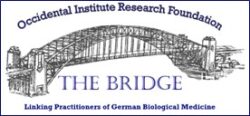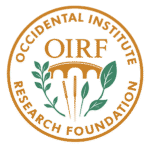Information about Glutathione and Selenium
Glutathione
Glutathione is the most important water soluble Antioxidant. Together with the enzyme glutathione peroxidase – a selenium containing enzyme – it is effective and detoxifies free radicals. It can regenerate vitamin E and vitamin C. Glutathione is formed together with the amino acids glutamic acid, cysteine and glycerin.
Cysteine and glutathione help to reduce (to detoxify) the often toxic effects of medications. Glutathione plays an important role in the formation of leukotrienes, resistance materials of the immune system which are directed against an inflammation. The glutathione level in the body cells decreases drastically with increasing age. Therefore glutathione in cooperation with (for example) cysteine as an effective antioxidant can slow down the premature aging process (e.g. with cancer, arthritis, Parkinson’s disease and arteriosclerosis).
With cataracts the glutathione level drops in the eye lens. Here also support with glutathione is indicated; furthermore for burden with heavy metals, air pollution, auto exhaust fumes, etc. The mucous membrane of the stomach is glutathione-rich and sensitivity increases with increasing age. Support also offers advantages here.
Alzheimer patients show a very low glutathione level. Scientists conclude from this fact that glutathione could possibly offer a protection against Alzheimer’s disease.
Selenium
As already described with glutathione, selenium is an important component of the enzyme glutathione peroxidase. It serves as cell protection against radicals, environmental poisons and radiation.
In the immune system selenium is of great importance and helps promote immune globulins (protein bodies) like IgG, gamma interferon, the tumor necrosis factor and the activity of the killer cells; i.e. to be effective as prevention against cancer diseases.
Since selenium occurs in a very low measure in the soil in this part of the world, an additional dose of selenium can be advantageous. It is recommended to supply from 25-50 µg. Rheumatism/rheumatic illnesses, heart insufficiency, heavy metal burdens through smoking, gastro-intestinal diseases, fibrosis and infection susceptibilities can come from a very low selenium content. Therefore this should be treated by giving selenium.

An information commentary for Members
From THE BRIDGE Newsletter of OIRF
Published May 15, 2007
From a commentary in Co-Med, Nr. 3/2007
Machine Translation by SYSTRAN, Lernout & Hauspie, LogoMedia & Promt
Translation & redaction by: Carolyn L. Winsor, OIRF
© Copyright 2007, Occidental Institute Research Foundation, BC Canada


